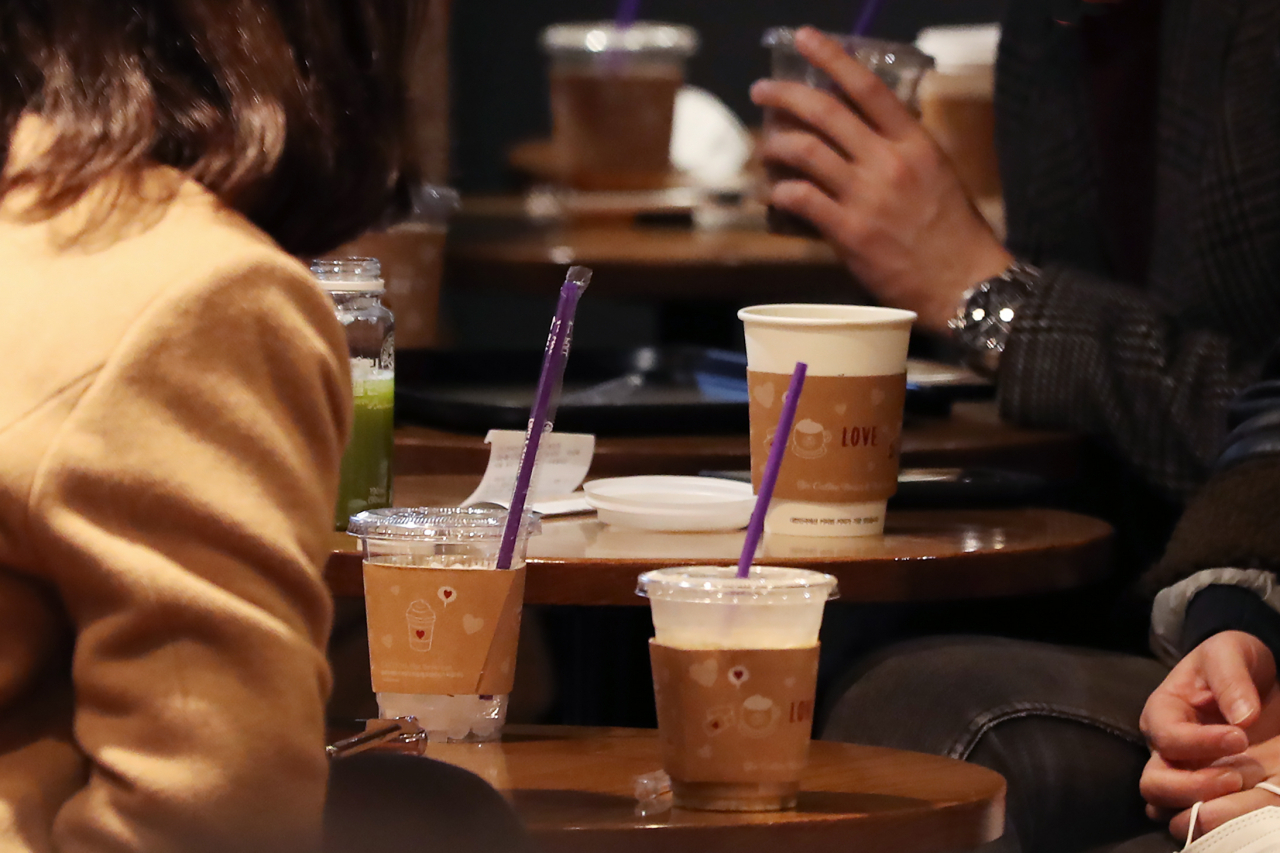
South Koreans drink an average of two to three cups of coffee per day, with the overwhelming majority of coffee consumers in their 40s and 50s, a survey showed Tuesday. Experts explain that Korea's work culture, along with a slew of other factors, contributed to the nation's obsession with coffee.
According to a survey conducted by the Korea Agro-Fisheries and Food Trade Corporation from March 2019 to May 2022, nearly half of the respondents (47.4 percent) said they drink two to three cups of coffee daily.
Some 40 percent said they drink "about one cup a day," while around 7 percent said they drink four to five cups a day. Another 7 percent answered they drink more than six cups of coffee per day.
By age group, the survey showed that Koreans in their 50s consumed coffee the most (35 percent), followed by people in their 40s (32 percent), people in their 30s (22 percent) and people in their 20s (12 percent).
The data suggest that nearly 70 percent of coffee in Korea was consumed by the middle-aged population in their 40s and 50s.
As for why they drink coffee, the majority of respondents across the age groups responded that they drink coffee "out of habit," instead of for the taste.
Specifically, 64 percent of the respondents in their 50s answered that they "habitually drank coffee," rather than for the reason of savoring the beverage's taste.
Around 58 percent of respondents in their 40s selected the same option, in addition to 51.2 percent of respondents in their 30s.
Experts say Korea's working environment and the influences of the COVID-19 pandemic on work culture may have been the cause behind the nation's increasing "habitual" coffee consumption -- along with middle-aged Koreans' exposure to coffee from an early age.
"The middle-aged population (40s and 50s) is the backbone of Korea's economy," said Jeon Mi-young, a researcher at Seoul National University's Consumer Trend Center.
"With Korea having a highly demanding work environment, and a coffee time culturally recognized as a break time, coffee might have been purposefully sought after (by the middle-aged population) as one of the ways to take a break during a busy day," she said.
Jeon also added that the pandemic had caused "hoesik" or company dinner culture to shift to meetings held in cafes instead.
"Cafes rose as an alternative, suitable choice for many events, ranging from official business meetings to a simple meet-up. They also worked as a replacement for various 'hoesiks,’ which could have ultimately contributed to nation's increased habitual consumption of coffee," she said.
Moreover, Jeon explained that the middle-aged population was exposed to globalization, including the import of coffee, starting the 1980s.
"The middle aged population has been familiar with foreign cultures such as drinking coffee from an early age, which could have led to their habitual, high consumption of coffee in the present," she added.
The recent data emphasizes Korea's long-held record of having one of the highest rates of coffee consumption in the world.
A market research firm Euromonitor International's data in 2020 showed that Korea ranked second in the world in terms of coffee cups drank per year, recording 367 cups a year. The data showed that Korea recorded more than two times the global average coffee consumption rate at the time, which was 161 cups per year.





![[KH Explains] How should Korea adjust its trade defenses against Chinese EVs?](http://res.heraldm.com/phpwas/restmb_idxmake.php?idx=645&simg=/content/image/2024/04/15/20240415050562_0.jpg&u=20240415144419)